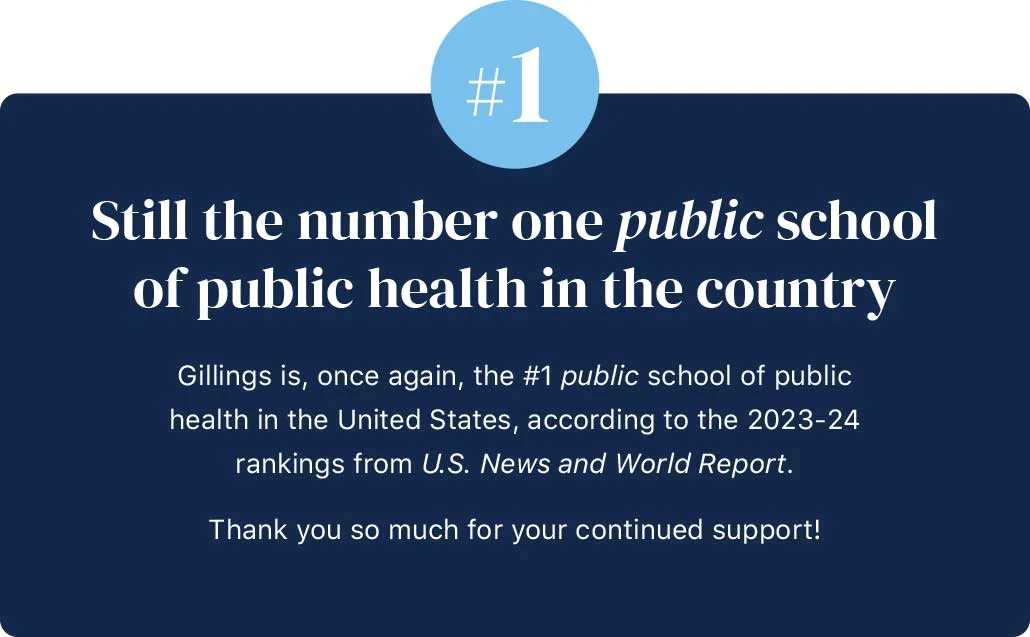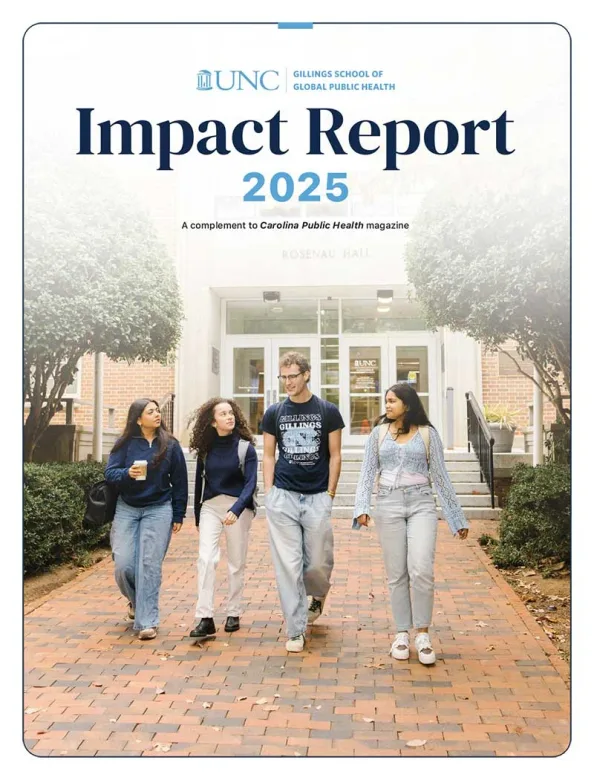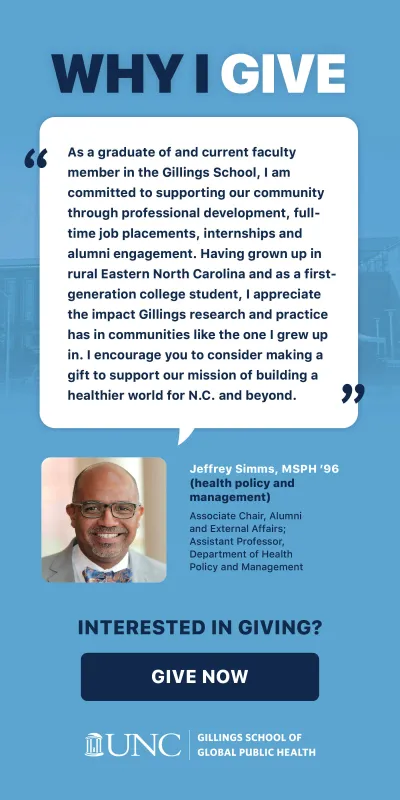Gillings School elevates practice at annual NCPHA Educational Conference
Gillings students, faculty and staff connected with public health professionals from across North Carolina at the NCPHA conference to share research, strengthen workforce capacity and advance community health through academic-practice collaboration.
Gillings faculty, staff and students led sessions and shared research at the NCPHA conference, strengthening partnerships and advancing public health practice.
This September, the Gillings School had an outsized presence at the annual N.C. Public Health Association (NCPHA) Fall Educational Conference, in Wilmington, N.C.

The event brings together public health professionals at all career stages — students, mid-career professionals and retirees — to strengthen practice through connections and strategies that lead to healthier North Carolinians.
It’s where academics meet practice, and Gillings’ collaborative work helps the state’s workforce evolve. More than 20 Gillings representatives — from the North Carolina Institute for Public Health (NCIPH), the Departments of Public Health Leadership and Practice (PHLP) and Maternal and Child Health (MCH), and more — attended the conference to share mission-driven work aimed at building capacity of practitioners and leaders in the public health workforce.
Four priority areas — communications, policy development and support, organizational competencies, and accountability and performance management — have guided statewide collaboration. These capabilities are essential for governmental public health services to deliver protections and programs that improve health. With federal Public Health Infrastructure Grant funding, NCIPH works with N.C. public health agencies to gather data, conduct surveys, develop trainings and provide other support resources to enhance these areas.
Many presentations at this year’s conference drew from this work and covered topics such as:
- Building Leadership Capacity to Strengthen Public Health Infrastructure in N.C. (given by Breyana Davis and Steve Orton)
- Workforce WINS: Early Success from the N.C. Public Health Pathways Program (given by Alexa Katon)
- Mission Driven Onboarding: Building Public Health Capacity Through Foundational Training (given by Lori Rhew and Ellis Matheson)
- Accreditation: Past, Present and Future (given by Margaret Benson Nemitz and David Stone)
- Reporting Alignment Crosswalk for North Carolina Local Health Departments: Change Management in Practice (given by Bridget Nelson and Sara Currin)
- Combatting STIs in Young U.S. Servicewomen: A Systematic Review of Sociodemographic Risk Factors (given by Grace Smolen and Julia Donavant)
The Gillings School was a silver-level sponsor and hosted a table to share program information. Students, staff and faculty presented posters and research. Dorothy Cilenti, DrPH, professor of maternal and child health and director of the National Maternal and Child Health Workforce Development Center, delivered the closing keynote, highlighting collaborations with local health departments.
Several Gillings members and partners were honored for their practice-based work. Lori Rhew and Ellis Matheson received the Academic Practice-based Research (ABPR) Practitioner Oral Presentation Award for foundational public health course development for Buncombe County Health and Human Services, Department of Public Health. Master of Public Health student Grace Smolen earned the APBR Student Poster Award for “Bridging the Gap: Academic-Practice Partnerships to Optimize Resource Registries to Support Veteran Mental Health.”
Additional student posters included:
- Systems Thinking in Public Health Practice: Engaging Communities to Advance Veteran Wellness (Jessica Linger and Maria Guta)
- Cross-Sector Collaboration to Strengthen Systems of Support: Lessons Learned from Phase 1 of the Healthy Vets Community Project (Jessica Linger and Mariangelie Torres-Maldonado)
“A lot of magic can happen in a place like this conference when we have the opportunity to converge in person,” said Amy Joy Lanou, PhD, director of NCIPH and professor of PHLP. “When a leader in the state public health division, a person who’s leading health communications in a specific county and our team member that’s guiding regional health communications all sit at the same table or are discussing somebody’s work in a conference session — that sticks. And then people build on that.”
The week also included a quarterly retreat with local and state practitioners and NCIPH staff, plus a pre-conference session on communication — a growing priority in an age of misinformation. Eight NCIPH representatives and partners presented. Martha Anne Sperandio, MPH, communications project manager, shared updates on a collaborative network supporting health campaigns statewide. “Collaboration and peer-support are key in building capacity for local health departments to effectively communicate trusted messages to North Carolinians they serve,” she said.
Elevating public health practice will continue to play a major role in the Gillings School’s strategic plan, and the NCPHA conference plays a major role in ensuring those in PHLP, NCIPH, MCH and partners across the state create informed strategies about how to improve their work in the community.




